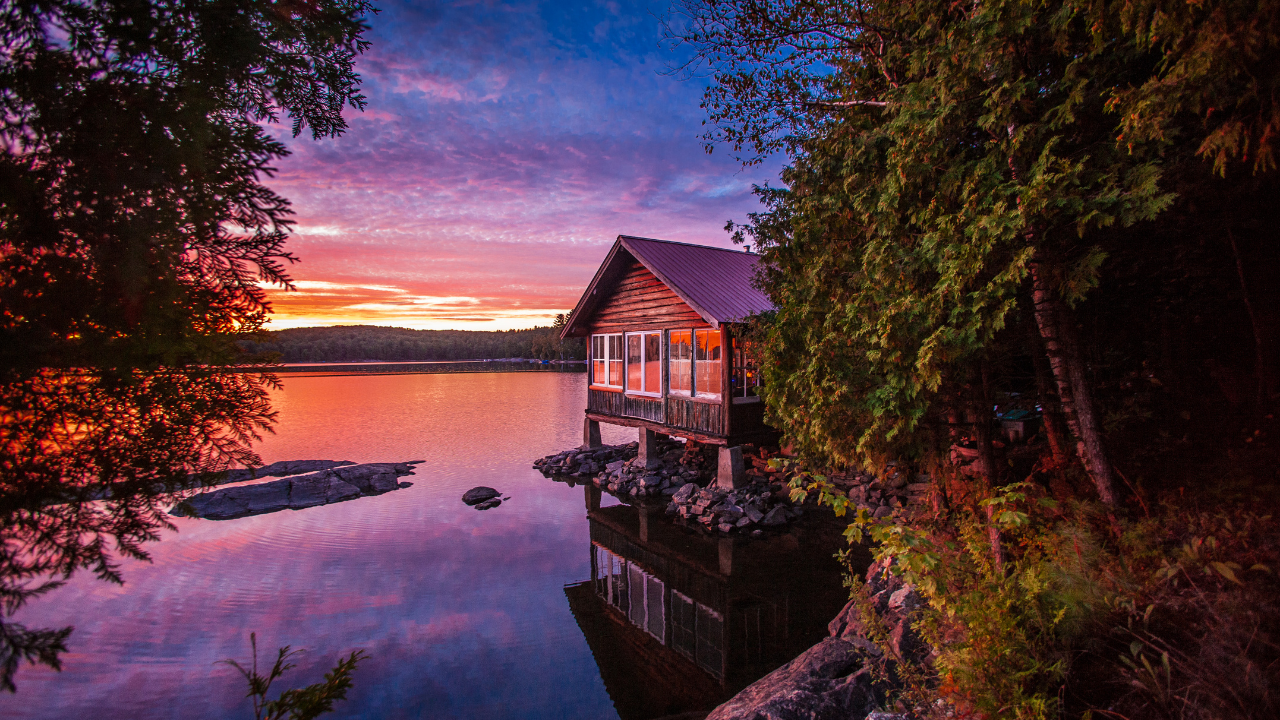
With less than a month to go until the May long weekend, many Newfoundland & Labrador cabin owners are gearing up for a summer of rest & relaxation. But before you load up the cooler with ice and your favourite beverage, take a moment to get to know the biggest risks facing your cabin from Canadian Underwriter.
Water is frequently referred to as “the new fire,” but not for cabin owners, where a fire is still the leading cause of property destruction.
“In personal lines, we have seen water become the new fire, or in some cases surpass fire, in terms of the leading cause of loss,” says Shawn Mckone, a senior manager with specialty claims at Aviva Canada. “With cabins, it’s actually clear that it’s still fire.”
Fire
Several different factors lead to cabin fires.
“One of the big factors is that there are typically no nearby fire departments [in remote areas],” Mckone says. “What we see is [as a result is] that there are not a lot of partial fires with cottages. When they get lit on fire, unfortunately, they tend to burn down.”
Another factor is the rustic setting that attracts people to the cottage in the first place. The very same landscape happens to offer a ready supply of fuel for fires.
“There are a lot of nearby trees there and some heavily wooded areas,” as Mckone explains. “In claims, we often see that the fire is linked to nearby trees, and then the flames and embers jump to the cottage.”
Other potentially combustible materials on the property include gardening supplies, firewood, and roof gutters filled with dry leaves and other dry debris. “If an ember lights up there [in an uncleared gutter], it can set those things on fire and burn a cottage as well,” said Mckone. He recommended that clients store flammable materials well away from the actual cottage itself.
Clients who have seasonal homes or cabins should make sure that dead, dry trees on the property are removed. It would also be wise to remove or at least prune trees that are growing right next to or leaning on the cottage. “It just makes it less likely that a fire that does occur to a nearby tree or trees, can then spread to the cottage,” said Mckone.
Water
Water may not be the new fire for cabin owners, but it still ranks as the second-highest cause of loss, according to Mckone.
You might expect floods to result from living so close to lakes, rivers, streams, and creeks. Or from the rain that always seems to come down to spoil your evening outdoor barbecue. But what exacerbates the water losses is that people often aren’t at their cabins when the damage happens.
“The interesting thing about water losses is that because of the nature of seasonal residences — the fact that they are unoccupied for significant portions of the year — we do experience problems because of that,” said Mckone.
“Two areas where we see a lot of losses happen include frozen water lines and [pipe] systems in the winter, and we also see a lot of problems with roof leaks for a variety of reasons. It could be from wear-and-tear on the roof, ice damming, or wind damage.
“The problem is that, because cabins are unoccupied for certain parts of the year, water can be leaking for a very long period before someone discovers it, and that increases severity. You get a lot of mould, rot, deterioration, and problems with that.”
And so, clients closing up their cabins for the winter should remember to turn off the water supply and drain all of the pipes. They should also keep eavestroughs and downspouts clear, so that water doesn’t back up and leak. And, speaking of leaks, make sure the roof is in a good state of repair.
Wind
If the water doesn’t get to your roof, the wind certainly will. Wind is the third-highest cause of damage to cabins, Mckone says.
“When it comes to wind, we obviously see shingles being blown off the roofs; it’s very common everywhere,” he said. “But what stands out for cabins is that we see a lot more trees coming down, because of the location in these wooded areas.”
Falling trees don’t just damage cabins — they will crash into sheds and garages as well.
To prevent wind damage, it’s important to clear dead trees from the area. If the roof is getting older and needs to be replaced, Mckone says, don’t put that off. Your basic asphalt shingle roofs can be expected to last anywhere up to 25 years.
“When you are installing a roof, if you are in an area that’s relatively windy, wind-proofing is a good option to discuss with your roofing company,” says Mckone. “Certain installation techniques and materials can make your roof more secure.”
Expert Advice from Wedgwood Insurance
Questions? We’d be happy to chat about your real estate concerns when it comes to your home insurance. There’s more to insurance than the price of the policy and Wedgwood goes above and beyond for our clients with expert advice you can trust. But don’t take our word for it – there’s a reason we’re Newfoundland & Labrador’s most trusted insurance broker.
With over 200 Google My Business reviews, come experience the Wedgwood difference with expert advice from our dedicated team. We work to ensure that every client has the coverage that best suits their needs through upfront complimentary consultations and midterm reviews.






